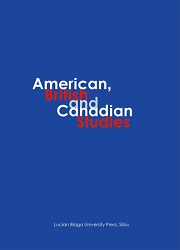The Postcommunist Supplement: The Revision of Postcolonial Theory from the East European Quarter
The Postcommunist Supplement: The Revision of Postcolonial Theory from the East European Quarter
Author(s): Bogdan ȘtefănescuSubject(s): Cultural history, Comparative history, Economic history, Political history, Marxism, Cold-War History, Post-Communist Transformation
Published by: Editura Universitatii LUCIAN BLAGA din Sibiu
Keywords: postcolonialism; postcommunism; comparative cultural studies; Soviet colonialism; Marxism; the Cold War; Eastern Europe;
Summary/Abstract: Postcolonial criticism appears today as the sole champion of the study of colonialism and its aftermath. However, viewed from post-Soviet Europe, it displays a number of flaws and lacunae: an amputated atlas of modern colonialism which ignores the experience of Eastern Europe under Soviet colonial occupation, a binarism that fails to explain the more complicated mechanisms of cultural colonization, and an in-built ideological bent that blinds it to the trans-ideological nature of colonialism whereby mutually incompatible ideologies have functioned as both the hegemonic and the counter-discourses of colonialism. While it has found the general framework of postcolonialism useful, postcommunist cultural studies has worked inside these theoretical interstices to supplement the orthodoxy of postcolonialism with equally sophisticated analytical tools that seem more adapted to deal with trans-colonialism in the global age. This article explains the added value of the cultural critique of (post)communist coloniality: how it has complemented the routine charts of colonialism during and after the Cold War by more accurately mapping the complex colonial relationships between all “Three Worlds”; how it by-passed the simple binary imagination of radical postcolonialism in order to address the political ambivalence and the ethical dilemmas of global (post)coloniality where there are no fixed hero/villain positions; and how it replaced Manichean anti-capitalist discourses with a more flexible and open perspective on the convoluted ideological rapports during the Cold- War and after the collapse of the Soviet empire.
Journal: American, British and Canadian Studies
- Issue Year: 2022
- Issue No: 38
- Page Range: 139-162
- Page Count: 24
- Language: English
- Content File-PDF

